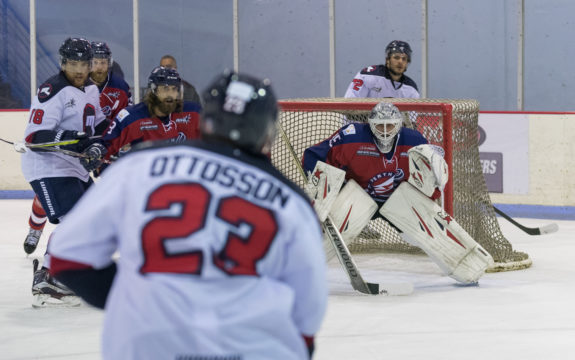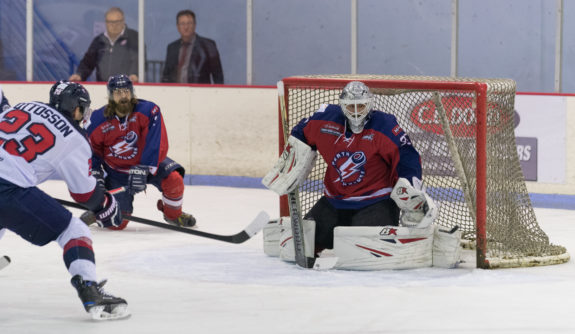The life of an expat playing in the Australian Ice Hockey League (AIHL) can be pretty fun but it is not always easy. Every northern hemisphere summer a handful of North American minor leaguers and a few players from lower tier European leagues head to leagues like the AIHL and the neighboring New Zealand Ice Hockey League to see the world and stay in hockey shape during their normal off-season.
One such player is goalie Peter Di Salvo. Di Salvo is a native of Oakville, Ontario, and is rejoining the Perth Thunder after playing a portion of the 2015 season with the team. Di Salvo is well traveled in the North American minor leagues seeing time with seven different teams in the ECHL and Southern Professional Hockey League over a four-year career. He spent the majority of the 2016-17 with the SPHL’s Mississippi RiverKings.
Brutal Nature of Travel in the AIHL
Di Salvo and his RiverKings teammates were eliminated from the SPHL playoffs on Saturday, April 15, after a 3-2 loss to the Huntsville Havoc in Game 3 of the best-of-three series. After the game, the RiverKings rode the bus back to Northern Mississippi. The travel was only just beginning for Di Salvo, however.
His first game with the Thunder was just over a week later on Sunday, April 23, in Perth. In order to get there, Di Salvo lost over a day due to travel and layovers.

“(Getting from Mississippi to Perth) was definitely a big transition,” stated Di Salvo. “I had a long travel schedule with two flights and over 24 hours of travel time combined and I also had an 11-hour layover in Abu Dhabi.”
Di Salvo knew things would be tricky with regards to game prep.
“I did my best to get as much sleep as possible during the flights and even at the airport in Abu Dhabi. It did help, but being off the ice for an entire week and jumping into a game right away was a little challenging. I really had to pick my spots on the ice as to when to go 100% or when to take it easy to reserve my energy. In the end, we got the job done and won the game.”
The travel saga didn’t end there, however. Perth is the largest city in the western half of Australia and the Thunder’s closest AIHL rivals are in Adelaide, a 2,692 km (1,763 mi) drive or a three and a half hour flight. As such, the Thunder fly to away games and, due to the structure of their schedule, they fly east virtually every other weekend just to play two games before flying back to Perth. Di Salvo says he doesn’t mind all the flying, though, and it helps that the accommodations feel like home.
“The travel over to the east isn’t bad at all. I’ve been traveling for hockey for years now and I’m used to it,” remarked Di Salvo. “The trips in Australia are a lot of fun. The hotels we stay at are like cottages or a small house. It makes it a lot easier to feel at home when we are on the road.”
Di Salvo Embracing the Hero Status
AIHL players aren’t paid to play, even the imports. The locals all hold down regular jobs on top of their duties to the team and so do the visitors. The team organizes opportunities for the players to find jobs during their stay in Australia and also provides them with a fully furnished living arrangement, transportation and equipment.
Despite not being paid to play, Di Salvo relishes the opportunity to be a role model for young Australians. He admits that he and his teammates are not able to help coach youth teams regularly due to their own work and hockey schedules but they do when they can because the locals are so welcoming and the kids really idolize these players.

Di Salvo’s way of thanking the locals for their kindness has been organizing two goalie camps that will occur on July 23 and August 13. He feels it will help to fill a void that is missing in Australia as well as help to grow the game and the skills of young Australians.
“The goalie camps are something I wanted to do,” said Di Salvo. “There are no full-time goalie schools anywhere in Australia. I would like to show the local goalies how I teach and what I teach so they can see what it takes to get to the top level of hockey.”
Not all hockey players are willing to uproot their lives and travel the length of the globe just to play a few more months of hockey but those who do truly appreciate the experience. The chance to stay in game shape while also living in and exploring a part of the world that many people, hockey players or not, will never get to see is enough to lure these players Down Under.